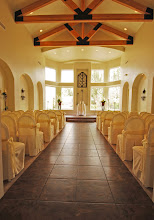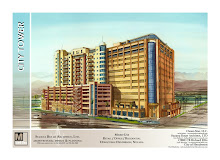Topics to pay attention to... the Las Vegas AIA publication (FOURM) for February 2006 cover article is from Randy Lavinge, Hon. AIA - Executive Director.
Here is her first paragraph:
"What does that mean? 'The Architect as Legislator'? It means that in the fast-paced, ever-changing, cyber-uniworld we live in today, an architect cannot simply be a good designer. It means that architects can no longer afford to let someone else make decisions that define our communities and the practice of architecture. Architects must make a conscious effort to be more aware of... and more responsive to... the local, state and federal governmental agends and how they impact our communities. It means that architects need to get involved in the political process. They need to seek out and accept leadership roles in their communities, so that they can help to guide the policies and the decisions that shape our cities, our nation and our world."
This paragraph and article raises great questions and discussions:
the following are my thoughts as well as some of my classmates regarding "THE ARCHITECT AS LEGISLATOR "
This is a very interesting topic. But where do we draw the line? If we get so actively involved in so many different things, politics, etc. when do we have time to do things thing that got us involved in the first place. If what you love is politics, then by all means get involved... Maybe one thing that we forget as students in architecture because we can afford to look at grander ideas and theories, is that architecture is a service industry. We provide a service, not a product. That service is provided to a client who expects to get their monies worth.
~Karrick
I think that there is something to be said for the "architect' to participate in local government. Take for example the townboards, city commission, city council, these boards are usally held by businness, political, and developer minded individuals. These same people are the ones voting on what is approporate or not. One the most part they have NO architectural or city planning background, yet we (for the most part) allow them to make the decisions. I would like to sit on one of these boards some day and bring my knodledge to the table. I also agree with you about getting to spread out as a profession. that is why we hire people to do those sotrs of things so WE can focus on the design and do what WE do. I too would like to know where the line is.
~Ken
I'm interested in what the article has to say. Do leadership and community action begin with the legislation? Is legislation a vehicle for carrying out our community ideas? Or is it a hurdle to overcome, whether at the beginning or the end of a process?
~Anne
11.01.2007
Portfolio: THE ARCHITECT AS LEGISLATOR
Subscribe to:
Post Comments (Atom)
Fun Links
- The American Institute of Architects
- AIA Las Vegas
- Suzana Rutar, Architect
- IECC COMcheck-web
- LA Dodgers
- Things to read
- Drivers, start your engines...
- Science is COOL!!!
- The City Tower
- Slovenian World Confrence - Architects and Builders from Slovenia and the World
- architectural studies library UNLV
- ASL Blog
- UNLV Bridge Studio


















No comments:
Post a Comment